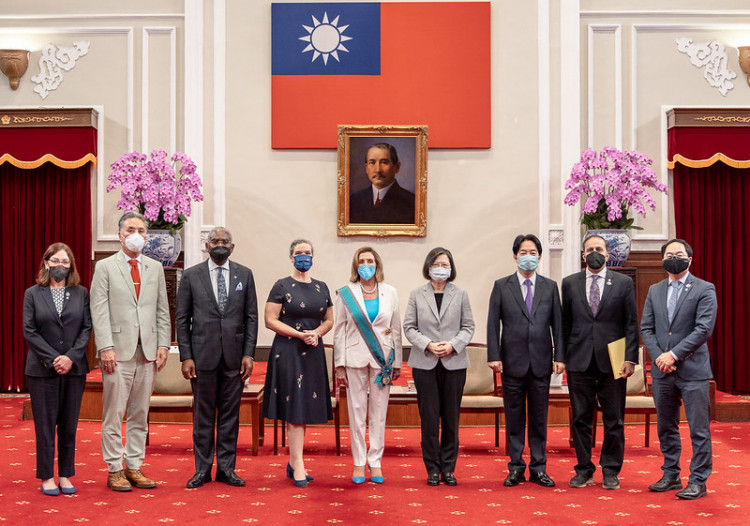China stated on Wednesday (Aug. 31) that Washington must remove the "negative influence" left behind by Speaker Nancy Pelosi of the U.S. House of Representatives' visit to Taiwan earlier this month before bilateral climate discussions with China can resume.
China stopped bilateral cooperation with the U.S. in a variety of sectors, including climate negotiations and communication between senior military commanders, on August 5 in reaction to the visit on Aug. 2 to 3.
The White House announced that it has summoned China's ambassador to Washington in order to denounce Beijing's "irresponsible" actions on Taiwan. The only way out of the problem, according to a representative of the Chinese embassy in Washington, is for the U.S. to "rectify its mistakes and eliminate the grave impact of Pelosi's visit."
Analysts claim that the suspension of some bilateral operations, particularly those that are military-related, poses a threat to the "guardrails" that the White House refers to as existing between the two nations and may prevent the situation from getting out of hand.
In an interview with the Financial Times on Tuesday, U.S. Special Envoy on Climate Change John Kerry encouraged Chinese President Xi Jinping to restart the bilateral climate negotiations after saying earlier this month that the suspension of the talks punished the entire world.
The former U.S. Secretary of State, who currently serves as the Biden administration's top climate negotiator, also expressed optimism to the newspaper that the nations could "get back together" before the COP27 climate summit, which will take place in November in the Egyptian resort city of Sharm el-Sheikh.
China, which asserts sovereignty over the independent island of Taiwan, responded to Kerry's comments on Wednesday by saying that the continuation of climate negotiations with the U.S. depended on steps done by Washington to address the "negative influence" of Nancy Pelosi's trip to Taiwan.
"The U.S. side should dispel the negative influence of Pelosi scuttling to Taiwan, this is an indispensable condition of China-U.S. climate change cooperation," China's foreign ministry in a written statement said.
China would keep taking an active part in international climate change conferences, according to the statement. Beijing's answer demonstrates how the world's two giants have different strategies for collaborating on the global climate change issue.
Although Kerry and other Biden administration officials have expressed the hope that tensions on other fronts would not impact U.S.-China collaboration on the subject of climate change, Beijing has rejected any notion of separating the two issues in U.S.-China relations.





